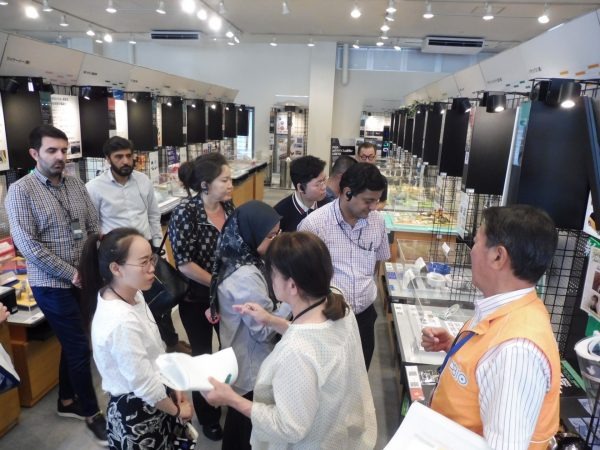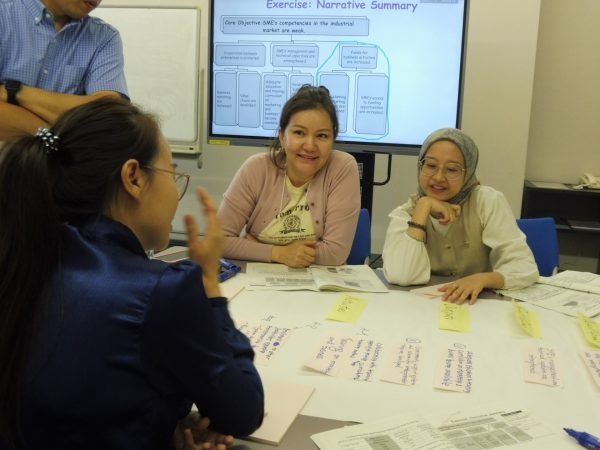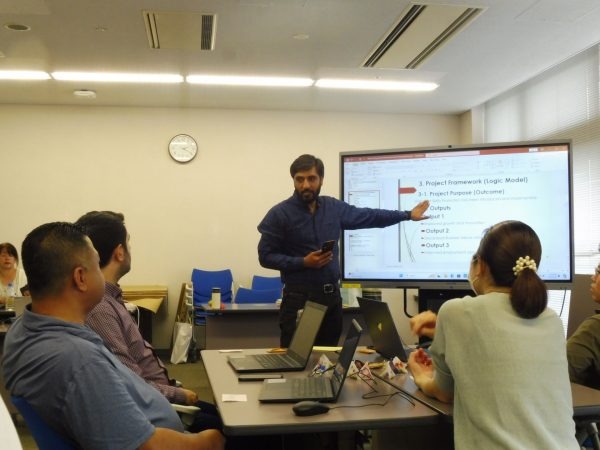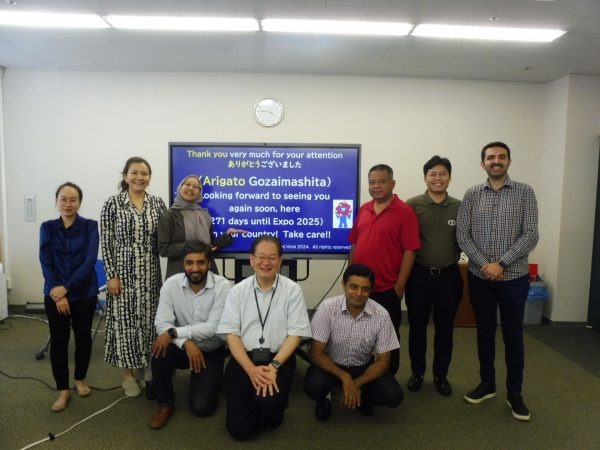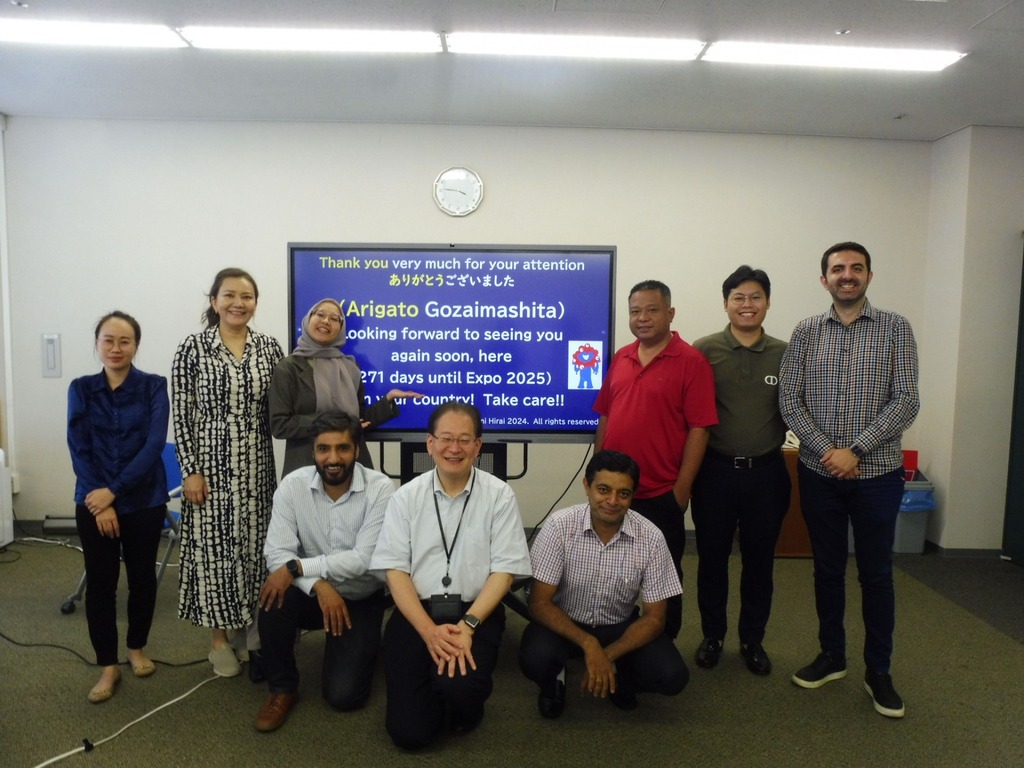
Schedule
June 25th – July 17th, 2024 *Training eligible during this period
Country / Member
- Indonesia
- Lao People's Democratic Republic
- Marshall Islands
- Mongolia
- Nepal
- Pakistan
- Macedonia, the former Yugoslav Republic of
- Viet Nam
Target
For Government Officials and Business Leaders from Developing Countries
Participants
Employees of central ministries and agencies, local government administrators, and members of other public support organizations such as chambers of commerce and industry, all involved in SME development
This training program was designed to clarify the issues facing small and medium-sized enterprises (SMEs) in participants’ home countries and to strengthen the capacity of SMEs to formulate their own promotion policies. Eight participants, including officials from central ministries and agencies, local government administrators, and members of other public support organizations involved in the promotion of small and medium-sized enterprises such as chambers of commerce and industry, participated in this training program.
The program began with a lecture by the central government in Tokyo to learn about policy planning and implementation at the national level, followed by visits to various related organizations and companies, mainly in Hyogo Prefecture, to observe measures and initiatives at the local level.
This year, the program finally returned to its pre-COVID format, with all four weeks of training conducted in a face-to-face format in Japan.
Schedule
June 25th – July 17th, 2024 *Training eligible during this period
Course Leader
Takumi Hirai (Associate Professor, Mukogawa Women’s University)
Client Organization
JICA Kansai
SDGs
Persons in Charge
Funami, Kojima
A Practical Approach to Promoting Small and Medium Enterprises
There are two points worth mentioning in this training course. First, in order to improve the quality of the action plan, which is the end product of the training, we introduced lectures and workshops on “Action Plan Development Using PCM Methodology” by experts in the field. The PCM method is used by JICA and international organizations in the field of development assistance to ensure effective implementation of projects and by understanding the PCM method, highly feasible action plans can be created. Only one participant had ever studied the PCM method, and for almost all of them, this was their first time learning it. Many of the participants remarked that the session was very meaningful and that they would be able to use the information immediately after their return to their home countries.
Another point is that, with the return to a face-to-face format for the entire training schedule, we deliberately increased the amount of time for workshops and exchanges of opinions, which had been quite difficult to conduct in the online format. Half of the time previously allocated for lectures, which were only two hours long, was now used for workshops, where the participants were challenged to solve problems related to the lecture content by making full use of the knowledge and information obtained in the lectures. The active participation of the participants was remarkable, as they shared their fresh knowledge and ideas with each other. One participant commented, “This kind of workshop format allows participants to casually exchange opinions with other participants and deepen their understanding.” The participant felt that they were able to take full advantage of the best part of the face-to-face format: having the other participants in the same space, making eye contact and speaking, instantly creating a sense of solidarity and building a relationship of trust.
Although the training was conducted within a limited time frame of four weeks, we hope that this training will contribute in some way to the promotion of small and medium-sized enterprises in the participants’ countries, and that it will also provide an opportunity for participants to learn about and explore Japan.
![A scene from a lecture]](https://www.prex-hrd.or.jp/uploads/training_program/8d91341f33ae729bdf600d9f34da10c0.jpg)
